In today's digital age, having a clear social media policy is essential for fostering a positive online presence while protecting your brand. Crafting a well-defined policy not only guides employees on appropriate social media conduct but also reinforces the values and mission of your organization. By establishing consistent guidelines, you can ensure that everyone is on the same page, minimizing potential risks and enhancing your company's reputation. Curious to learn more about implementing an effective social media policy? Keep reading!
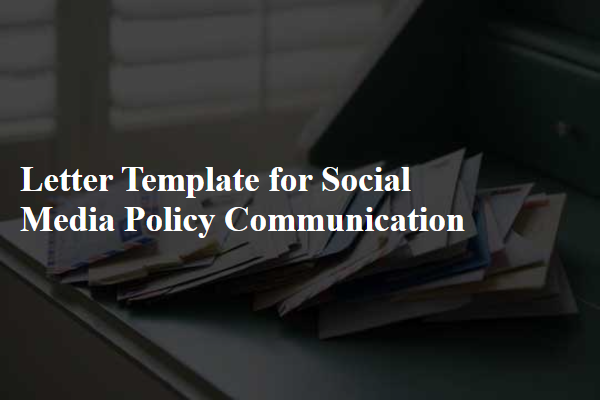
Purpose and Importance
Establishing a social media policy is essential for organizations aiming to navigate the digital landscape responsibly. This framework outlines expected behaviors and guidelines for employees using platforms like Facebook, Instagram, and Twitter. Such policies help protect the organization's reputation, ensuring that communications remain professional and aligned with brand values. Clear guidelines minimize risks related to confidential information exposure and inappropriate content sharing, fostering a culture of accountability. Furthermore, a well-defined social media policy can enhance employee engagement, promoting positive interactions while safeguarding personal and organizational interests in an increasingly interconnected world.
Acceptable Use Guidelines
Social media platforms serve as powerful communication tools for brands and organizations. Acceptable use guidelines are essential in shaping appropriate employee behavior online. These guidelines outline expectations for respectful interactions, protecting brand reputation, and maintaining a positive online presence. Employees should avoid sharing confidential information, engaging in harassment, or posting inappropriate content, all of which could lead to potential disciplinary actions or legal implications. Additionally, clarity on the use of official accounts versus personal accounts is crucial in preventing misrepresentation of the organization. Regular training sessions on the evolving landscape of social media and its impacts on business can further enhance understanding and compliance with acceptable use policies.
Privacy and Security Measures
Establishing a robust social media policy is essential for ensuring privacy and security for all users engaging with digital platforms. This includes guidelines aimed at safeguarding personal information shared on websites like Facebook, Twitter, and Instagram, where user credentials can be targeted by hackers. Implementing multi-factor authentication, which significantly lowers the chances of unauthorized access, is strongly advised, especially for platforms with millions of active users. Employees should be educated about the importance of utilizing strong, unique passwords that differ across accounts. Furthermore, understanding the implications of oversharing personal data can protect users from potential identity theft and cyberbullying incidents. Regular training sessions on recognizing phishing attempts also play a crucial role in maintaining a secure online presence.
Disciplinary Actions
Disciplinary actions in organizations are crucial for maintaining standards, especially concerning social media engagement. These actions can include warnings, suspensions, and terminations based on the severity of the infraction. For instance, a first-time minor violation, such as inappropriate comments on personal accounts during work hours, may result in a verbal warning. In contrast, serious violations like sharing confidential company information on platforms like Facebook or Twitter can lead to immediate termination. Documenting each incident is essential for transparency and fairness, ensuring employees understand the company's expectations regarding online behavior and the potential repercussions of their actions. Such policies are typically outlined in employee handbooks, providing clear guidelines for acceptable use of company-related social media interactions.
Review and Compliance Updates
In today's digital landscape, effective social media policies are crucial for organizations to maintain brand integrity and ensure compliance with regulations. Recent updates emphasize the importance of clear guidelines regarding employee conduct on platforms such as Facebook, Twitter, and LinkedIn. Sharing confidential information or engaging in harmful conversations can lead to legal issues and reputational damage. Organizations are encouraged to implement regular training sessions to educate staff about appropriate online behavior and the potential risks associated with non-compliance. Further, monitoring tools should be deployed to oversee social media activity, enabling proactive measures against any breaches of policy.

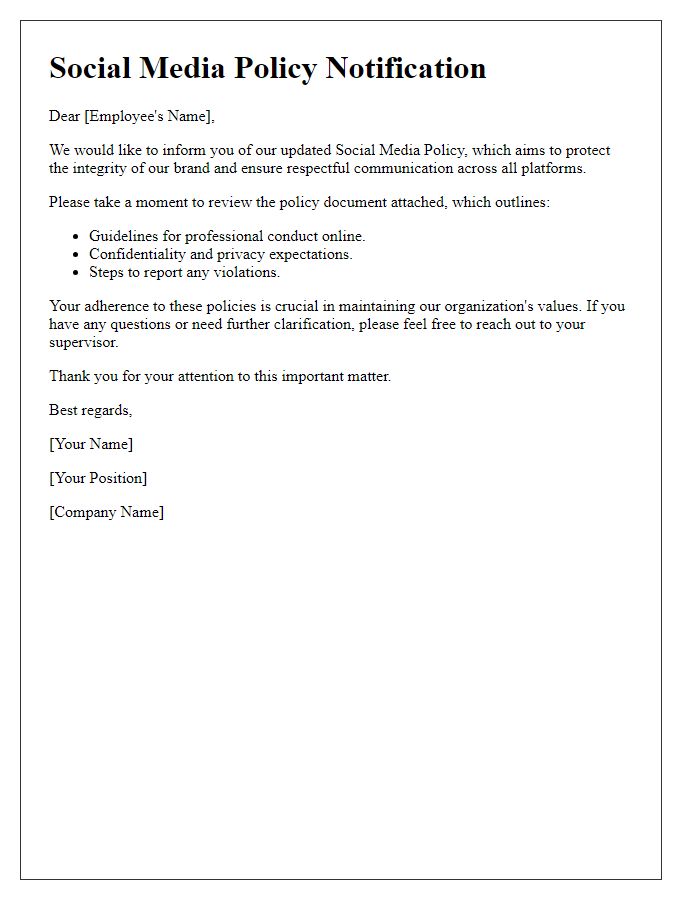
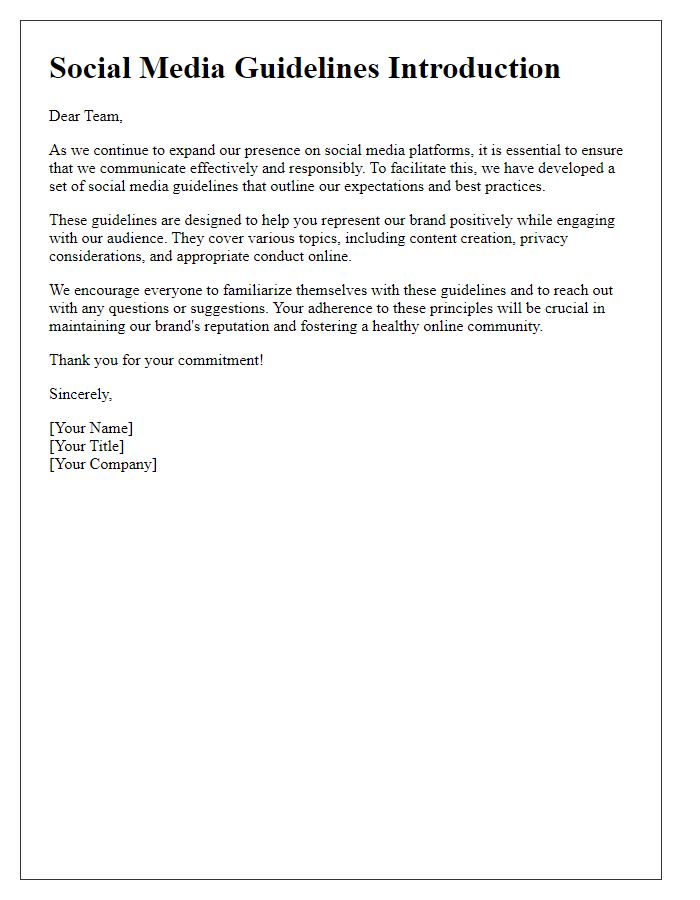
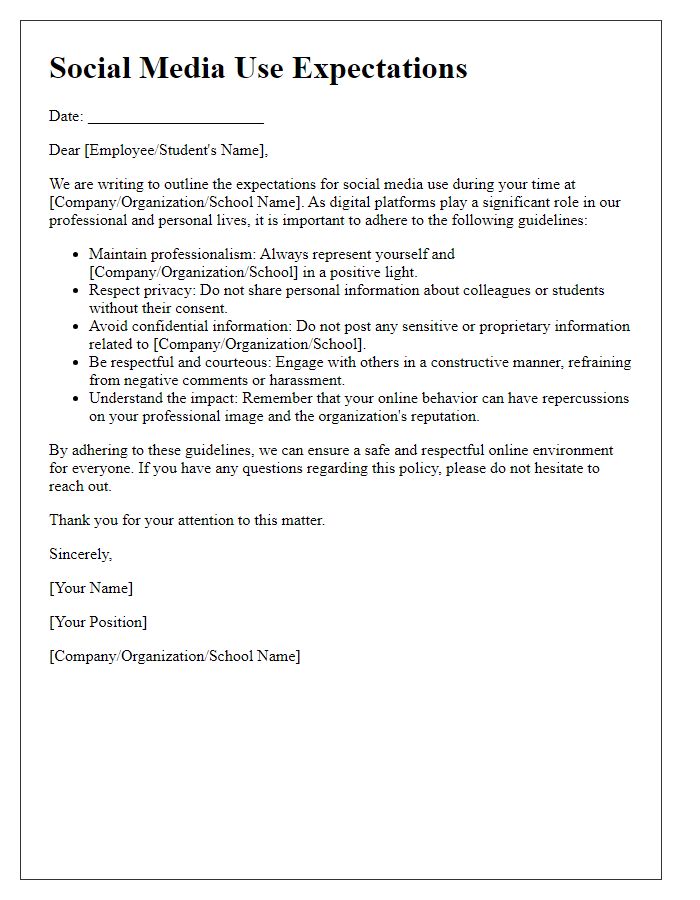
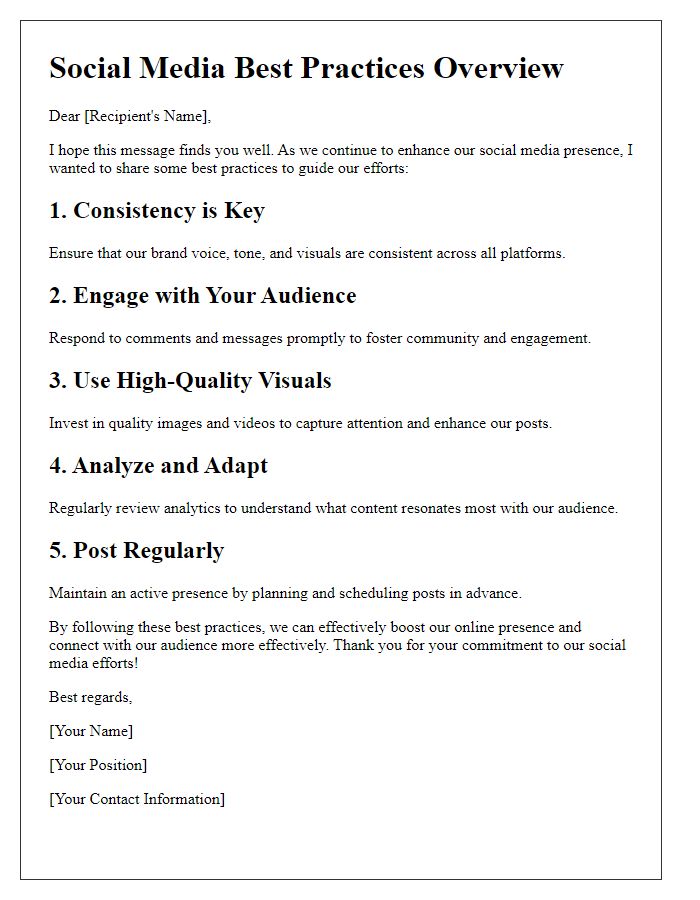
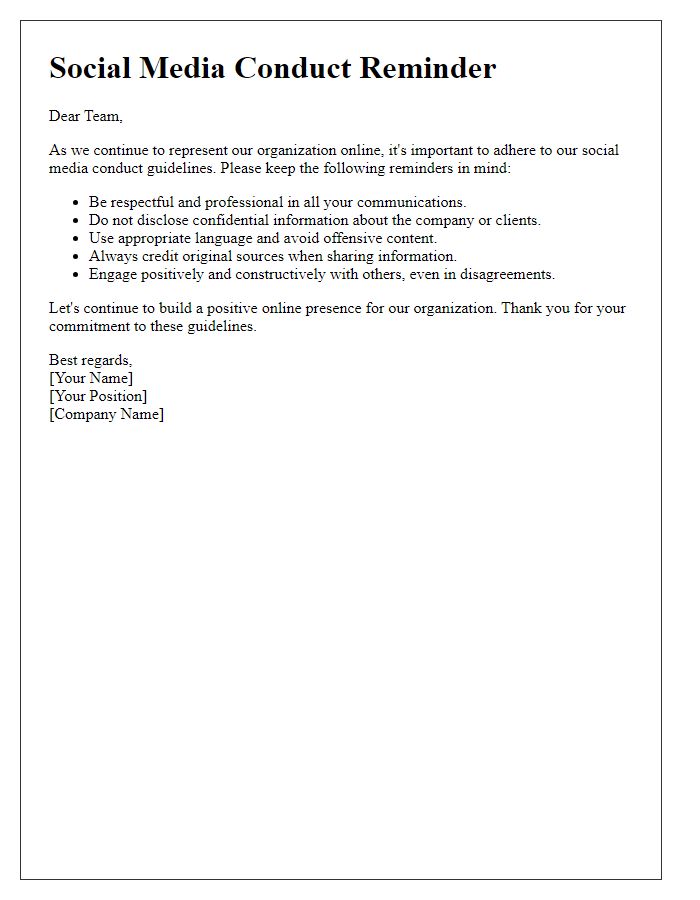
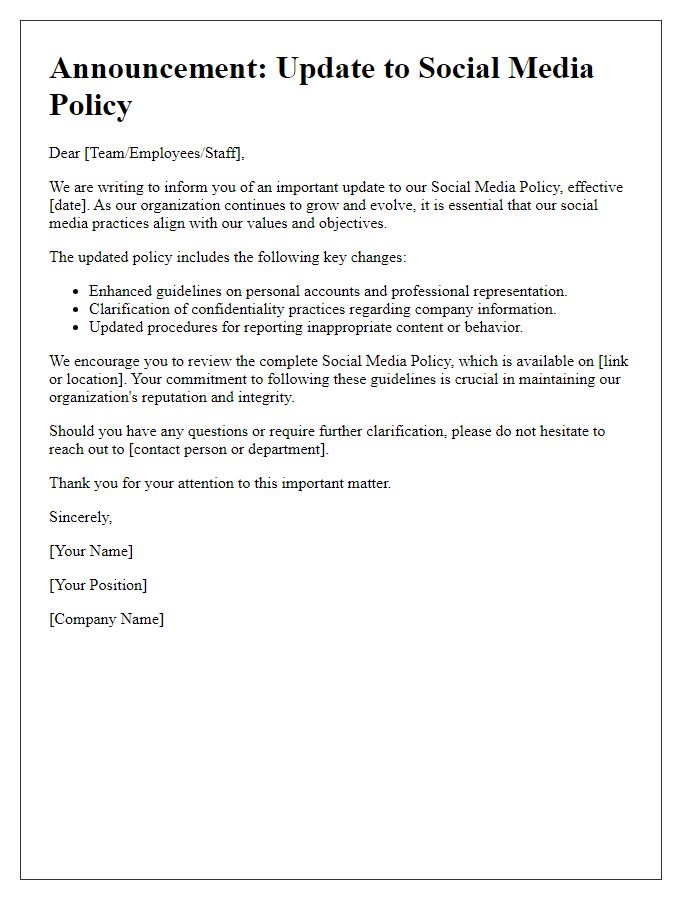
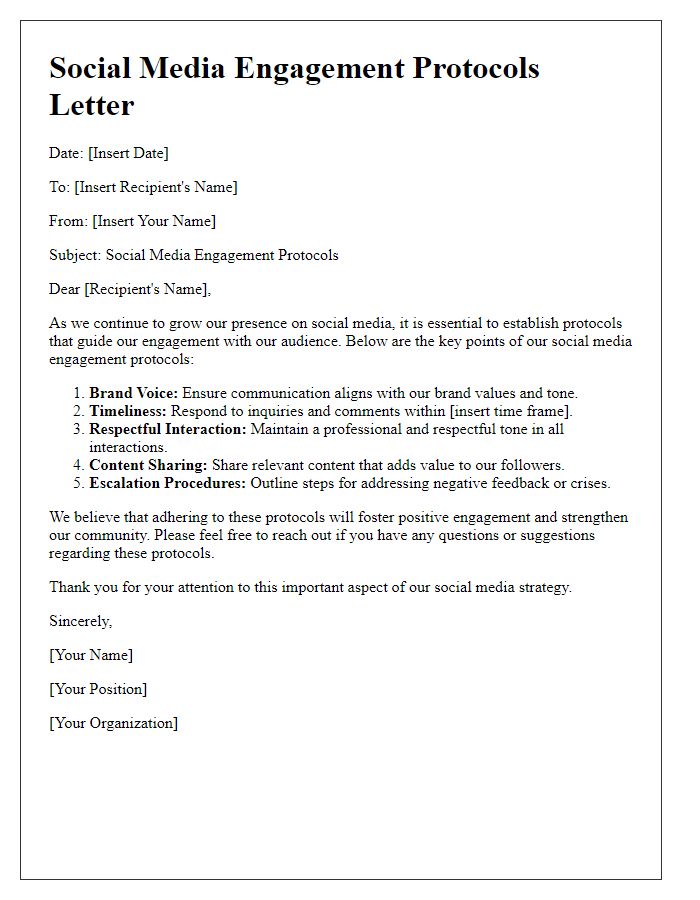
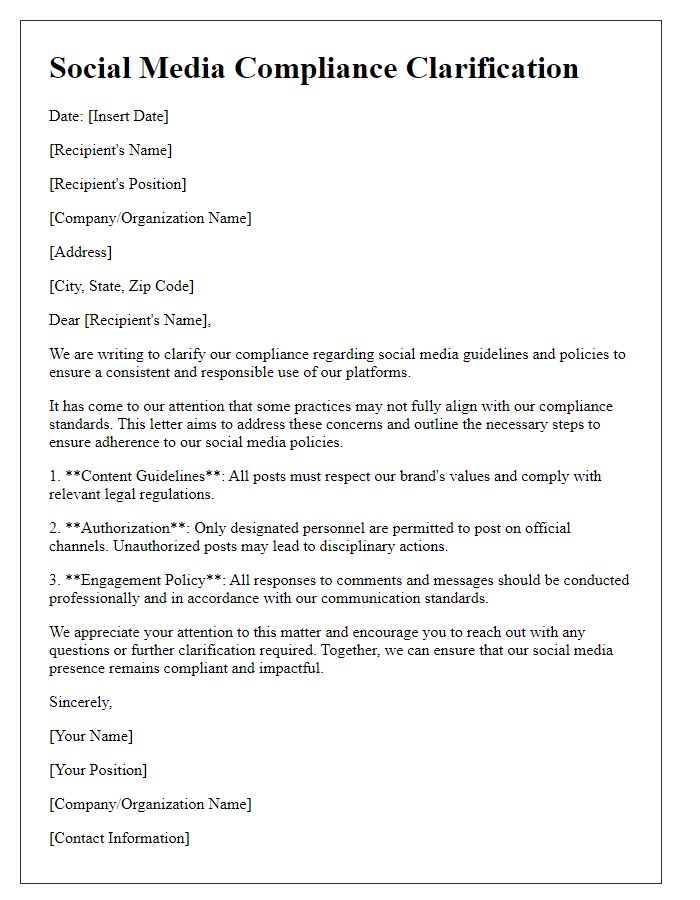
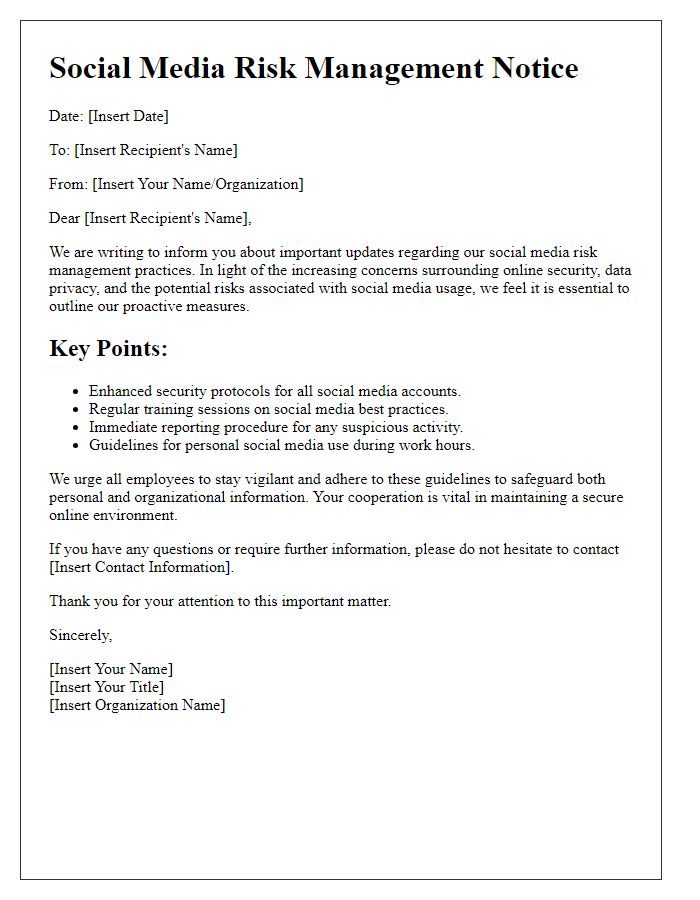
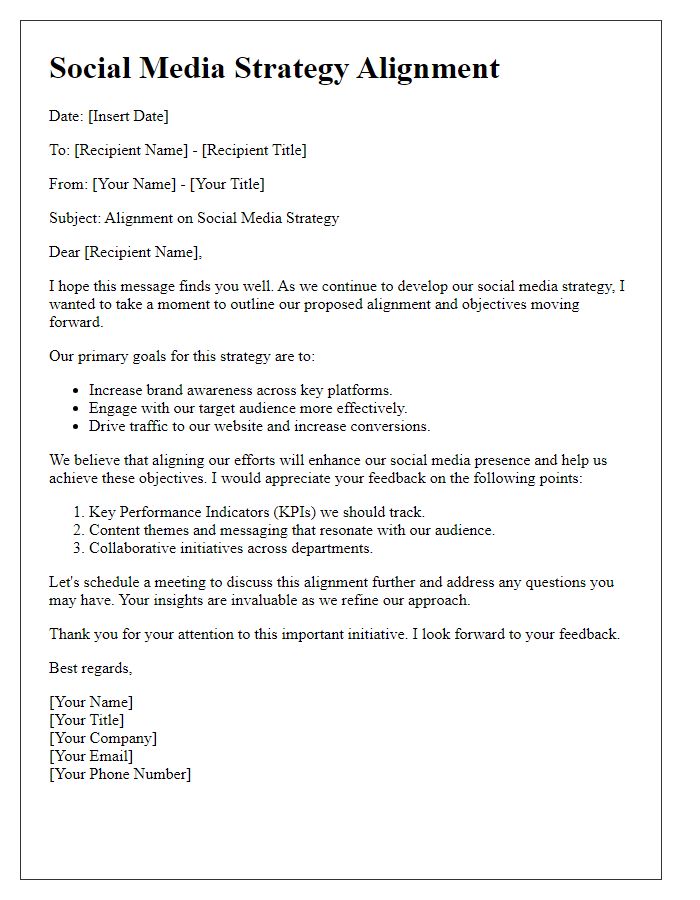


Comments